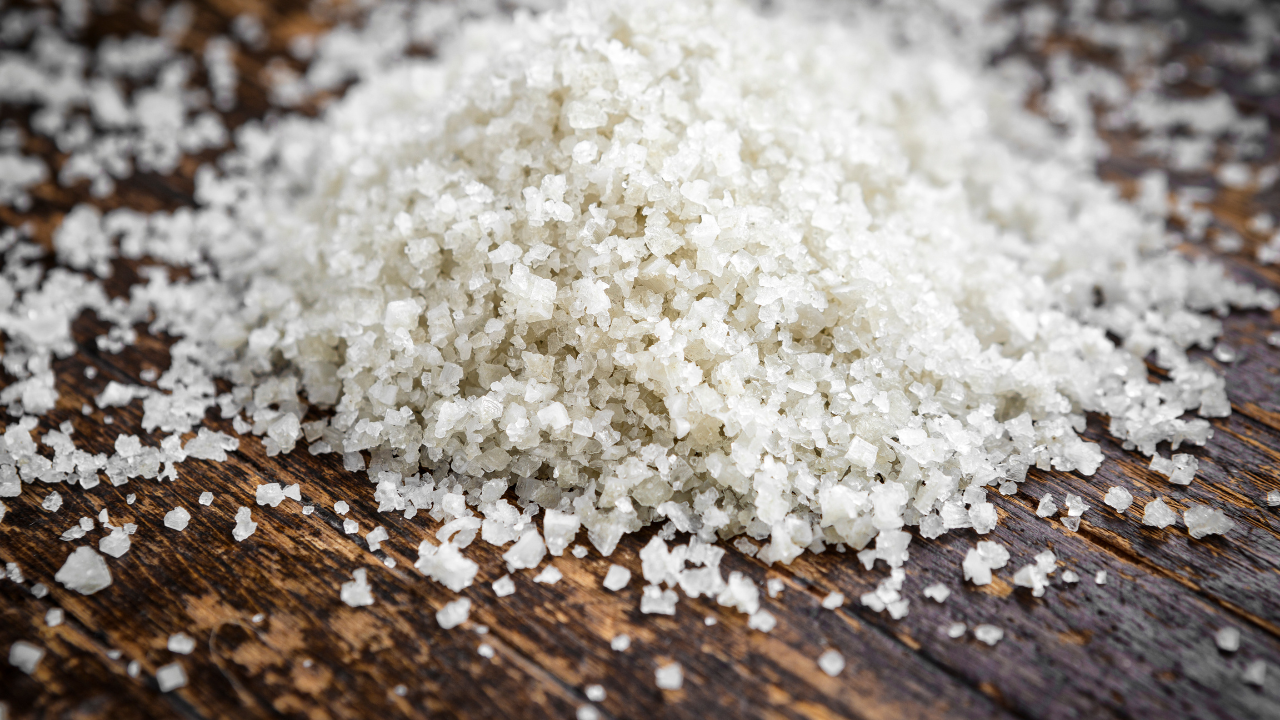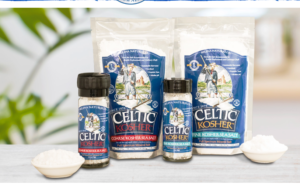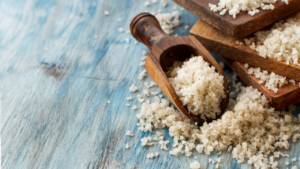The Health Benefits Of Celtic Salt

Celtic salt, also known as Celtic sea salt or grey salt, is a special type of salt harvested from coastal regions of France.
It stands out for its unique taste and potential health benefits, making it a popular choice for those seeking natural alternatives to refined table salt.
Let’s discover the benefits of Celtic salt and how it can make your food taste better while also supporting your health.
Mineral-Rich Celtic Salt
Celtic salt is valued for its minerals, such as magnesium, calcium, potassium, and trace elements like zinc, iron, and iodine.
These minerals are crucial for important bodily functions like nerve signaling, muscle function, and maintaining proper hydration levels.

Balanced Electrolytes
Celtic salt has a mineral composition that closely matches the electrolytes found in our blood.
Electrolytes are important for conducting electrical signals in the body, regulating heart rhythm, and supporting nerve function. Using Celtic salt can help restore electrolytes lost through sweating during exercise or in hot weather.
Supports Natural Hydration
Celtic salt keeps its natural moisture and contains minerals that help with hydration.
Staying hydrated is important for regulating body temperature, aiding digestion, and keeping your skin healthy.
Promotes Balanced PH
Celtic salt has alkalizing effects on the body, which can help counteract acidity from a diet high in processed foods and meats.
Maintaining a balanced pH level supports healthy cellular function and overall well-being.

Distinct Flavor
Sea salt has a unique flavor because of its minerals, giving it a rich and savory taste compared to regular table salt. It can boost the flavor of dishes without being too strong, which chefs and home cooks appreciate.
Moderate Sodium Option
Celtic salt contains sodium like other salts, but its mineral-rich composition may result in slightly lower sodium content per serving compared to refined table salt. Still, it’s important to use any salt in moderation for a healthy diet.
Digestive Support
Celticsalt’s minerals can aid digestion by stimulating digestive enzyme production and maintaining proper stomach acid levels.
This helps improve nutrient absorption and reduce indigestion symptoms.
Health Considerations
While Sea salt has health benefits, it’s important to use it in moderation, especially if you have conditions like high blood pressure or kidney disease. Consult a healthcare professional before making dietary changes.

Pros and Cons Of Celtic Salt
👍Pros:
- Contains important minerals like magnesium, calcium, potassium, and other trace elements that are good for your health.
- Helps support nerve function, heart rhythm, and hydration by matching the electrolytes in human blood.
- Keeps your body hydrated by retaining moisture and essential minerals.
- Adds a unique, savory taste to dishes because of its mineral content.
- The minerals in Celtic salt can aid digestion by promoting enzyme production and maintaining stomach acid levels.
Cons:
- Often more expensive than regular table salt or other alternatives.
- Not as commonly found as regular table salt, usually sold in specialty stores or online.
- Contains sodium and should be used in moderation, especially for those with health conditions.
- Quality may vary depending on the source and processing, which could affect taste or purity.
- Does not have added iodine like table salt, which is important for thyroid health. However, iodine is naturally found in seafood and some other foods.
Frequently Asked Questions
Is Celtic salt healthier than table salt?
Celtic salt, harvested from seawater and minimally processed, contains trace minerals like magnesium and potassium, which some believe offer health benefits compared to heavily refined table salt.
How does Celtic salt differ from table salt?
Sea salt is less refined and retains more minerals than table salt, which is heavily processed and often stripped of its natural mineral content.
What are the health benefits of Celtic salt?
Proponents suggest that Sea salt may support electrolyte balance, hydration, and thyroid function due to its mineral content, but more research is needed to confirm these benefits.










